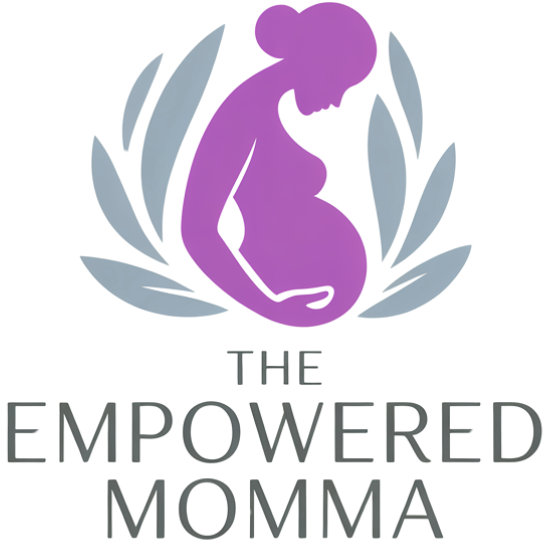Yes, babies can eat eggs! Pediatricians and nutrition specialists agree that eggs are safe and recommended for babies, generally starting around 6 months old as one of their first solid foods. In the past, doctors sometimes suggested waiting to introduce eggs due to concerns about allergies. Now, based on updated research and advice from organizations like the American Academy of Pediatrics (AAP), early introduction of eggs may actually help lower the chance of developing an egg allergy.

This easy-to-follow guide will help you learn when and how to introduce eggs, explain the benefits and preparation tips, and give you practical steps to handle any concerns about allergies or choking.
When Can Babies Have Eggs?
Many parents wonder about the right age to give certain foods like eggs. The good news-most babies can try eggs soon after they start eating solid foods.
What age can babies start eating eggs?
Babies can have eggs as soon as they begin solid foods, which is usually around 6 months. Make sure your baby can hold their head up, sit with little help, and shows an interest in food. Some babies are ready a little earlier, but you shouldn’t give any solids-including eggs-before 4 months. It’s best to focus on your baby’s development signs, not just age or calendar dates.
Are eggs OK as a first food?
Eggs are a great early food! They are rich in essential nutrients, not expensive, easy to get, and simple to prepare in a way that’s safe for new eaters. You can serve eggs softly mashed or pureed soon after your baby starts solids. Eggs also fit well into different feeding styles-whether spoon-fed or for baby-led weaning-because their soft texture is easy for babies to handle, even if they don’t have teeth yet.

Does the American Academy of Pediatrics recommend eggs for babies?
Yes, the AAP encourages introducing eggs to babies from about 6 months old. This is a change from older advice, which suggested waiting until later to lower allergy risk. Since 2008, the AAP has advised letting babies try eggs early because studies show early exposure can actually help prevent allergies.
Are Eggs Good for Babies?
Eggs are packed with nutrients that help babies grow and thrive. Here’s a look at some of the most important nutrients they offer:
| Nutrient | Role in Baby’s Health |
|---|---|
| Protein | Helps build muscles and tissues |
| Healthy fats & DHA | Supports brain and eye growth |
| Choline | Helps with memory and brain development |
| Iron | Essential for healthy blood and energy |
| Vitamins A, B12, D | Supports vision, bones, and immunity |
| Iodine, Selenium, Zinc | Helps with growth and protecting cells |
| Lutein & Zeaxanthin | Good for eyes and vision |
Eating eggs can help babies get the key nutrients needed for growth, strong muscles, brain and eye development, immune support, and preventing low iron.

Are Eggs Safe for Babies?
Eggs are generally safe for babies when you serve them in age-appropriate ways and watch for signs of allergies or choking.
Are eggs a choking hazard?
If prepared properly, eggs rarely cause choking. Dry, hard-boiled yolks can be tough for babies, so always mash with some liquid if you start with hard-boiled eggs. Soft, mashed, or chopped eggs are safest for new eaters. Avoid giving big, unmashed pieces to young babies.
- Start with pureed or mashed eggs for babies just starting solids (about 6 months old).
- Cut into small, soft pieces or strips for older babies who can self-feed.
- Always watch your baby while eating and have them sit upright.
Are eggs a common allergen?
Yes, eggs are one of the top allergens in children, and about 2% of kids have an egg allergy. The good news: most children grow out of this allergy, and many who are allergic to raw or lightly cooked eggs can still eat baked eggs (like in muffins).
Symptoms of Egg Allergy
Watch for these after your baby’s first taste of egg:
- Hives or rash
- Eczema worsening
- Sneezing or mild coughing
- Stomach pain, vomiting, or diarrhea
- Swelling of face, lips, or tongue
- Trouble breathing (rare but serious-call 911 immediately if this happens)
Should parents wait to give eggs if worried about allergies?
No, experts now recommend early introduction. Waiting does not reduce the risk. If your baby has severe eczema or other food allergies, ask your doctor before trying eggs. Your doctor may suggest allergy tests or a supervised introduction in a clinic.
How to Give Eggs to Babies
First Egg Introduction Tips
- Pick a day when your baby is healthy and happy.
- Offer a very small taste (such as 1/4 teaspoon) of well-cooked, mashed egg.
- Wait and watch for 10-15 minutes for any reaction. If no symptoms appear, continue with a little more.
- For the first few tries, give egg by itself (not mixed into something new) so you’ll know what caused a reaction if any occurs.
- Wait three days before introducing another new food.
How Much Egg to Serve By Age
| Age | Portion Size | Form |
|---|---|---|
| 6 months | 1-2 tablespoons | Pureed or mashed with liquid |
| 9-12 months | 1/4-1/2 egg | Finely chopped, bite-sized pieces |
| 12+ months | Up to 1 whole egg | Any easy-to-chew form (scrambled, omelet, muffin, etc.) |
Serving Eggs for Baby-Led Weaning (BLW)
- Offer strips of omelet or scrambled eggs (size: about as wide as two adult fingers together) for early self-feeding.
- As finger skills improve, cut into smaller pieces.
- Mini egg muffins or cups are also easy for babies to hold and eat.

How to Prepare Eggs for Babies (Step by Step)
6+ months (new eaters)
- Egg puree: Mash a hard-boiled egg with breast milk, formula, or water to make it smooth.
- Scrambled eggs: Fully cook, then mash well. For BLW, offer cut strips of plain omelet.
- Whole egg: Serve both white and yolk together for more nutrients. Avoid separating them unless directed by your doctor.
9-12 months (learning to self-feed)
- Offer small, soft pieces of cooked egg (scrambled, hard-boiled, omelet, or muffin-style).
- Encourage self-feeding with bite-sized pieces.
12+ months (toddlers)
- Offer eggs prepared in many ways: scrambled, omelet, muffins, or sliced hard-boiled eggs.
- Let your toddler try eggs with added cooked veggies or cheese for new flavors.
Egg Preparations and Forms to Avoid
- Undercooked or runny eggs: Never serve eggs with runny yolks or soft whites to a baby due to the risk of Salmonella.
- Raw eggs or raw egg-containing foods: Avoid uncooked batter, homemade mayonnaise, or desserts made with raw eggs.
- Large chunks: Don’t serve big pieces; always mash or cut eggs to prevent choking.
Can Babies Eat Eggs Every Day?
Babies and toddlers can eat eggs daily as part of a balanced diet, as long as they aren’t allergic. Eggs offer a lot of nourishment and fit in with many meals. Still, it’s good to offer a variety of foods, so your child doesn’t get tired of eating the same thing and so they get a mix of nutrients from different sources.

- Change how you serve eggs-scrambled, omelet, muffin, or with other foods like vegetables or toast.
- Mix eggs into meals with other flavors and food groups for a more balanced diet.
Egg Alternatives for Babies
If your baby can’t eat eggs due to allergy or food preferences, try these options:
- Applesauce: Acts as a binder in baking; adds moisture.
- Mashed banana: Binds ingredients in recipes, though it adds banana flavor.
- Flaxseed “egg”: Mix 1 tablespoon ground flaxseed with 2.5 tablespoons water; use as an egg substitute in baked goods.
- Pureed fruits/veggies: Example: pumpkin or prune puree adds nutrients and helps mixtures stick together.
- Yogurt (unsweetened): Adds moisture and binding power in some recipes.
- Commercial egg replacer: These are found in stores; check labels for safe ingredients.
Other protein and nutrient sources
- Pureed or shredded meats (chicken, beef, fish)
- Tofu or beans (lentils, chickpeas, etc.)
- Full-fat plain yogurt (if dairy is allowed)
Nutrients to watch if avoiding eggs
| Nutrient | Other Sources |
|---|---|
| Protein | Meats, tofu, beans, dairy |
| Healthy fats | Avocado, fatty fish, oils |
| Choline | Meats, fish, soybeans, potatoes |
| Vitamin B12 | Animal foods, dairy, supplements as advised by your doctor |
| Vitamin D | Fortified foods, supplements (many babies need vitamin D drops) |
| Iron | Pureed meats, beans, iron-fortified cereals, dark greens |
If your baby has an egg allergy or eats egg-free, talk to your doctor or a registered dietitian to make sure all their nutrition needs are met.
Frequently Asked Questions About Eggs for Babies
Can my baby have eggs every day?
Yes, babies and toddlers who are not allergic can safely eat eggs daily. Just remember to offer a variety of foods to cover all their nutrition needs and prevent them from getting bored with one food.
Should I give the whole egg or just the yolk/white?
Always give both the yolk and the white-whole eggs offer the most complete nutrition. The yolk supplies healthy fats, vitamins, and choline, while the white provides protein. Mixing them together smooths the texture and covers all nutrients.
When are runny eggs safe for kids?
Wait until your child is at least 5 years old before serving runny eggs. Babies and toddlers are more likely to get sick from bacteria in undercooked eggs. Fully cook eggs for young children for best safety.

